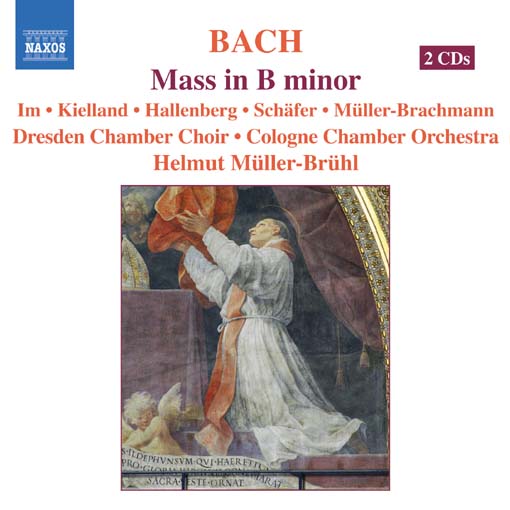1/8/11 Mass in B-minor (J. S. Bach)
After silence, that which comes closest to expressing the inexpressible is music.
- Aldous Huxley
According to this website, the unofficial checklist/starting point for the classical portion of this project, the Bach B-minor Mass is the most influential piece of western classical music, and I am somewhat embarrassed to admit how unfamiliar I am with it. I had to make this the first major choral piece to look at, it’s as simple as that.
Only there’s nothing simple about it. A nearly two hour work, written over the last 25 years of the life of arguably the greatest composer ever, assumed by scholars to be an amalgamation of his work over those two and a half decades… it’s a lot to take in. Doctoral dissertations could be written on the Gloria alone (and most likely have.) This piece is a huge undertaking, both as a performer and an audience member. As many of you are well aware, I’m not reviewing all of these pieces in real time, but am trying to keep about a week ahead of schedule. This piece I’ve spent five days pouring over, falling behind on getting ahead, so to speak. It’s a truly intimidating work, both is length and depth of writing.
If I have to begin somewhere, it would be this – this is a beautiful work of sacred literature. Secondly, it is an intellectually complex and stimulating display of writing finesse. Third, it displays a vast array of textures and styles that keep the listener engaged over the length of the work. Finally, it’s a long piece of music.
To that final note, according to most scholars, the B-minor Mass was most likely never performed in its entirety (either in concert or liturgy) during Bach’s lifetime. Concert performances of sacred works weren’t done then, for one thing – church music was written for the church. However to pray the Mass using this complete setting would run nearly 3 hours. Furthermore, Bach, being a Lutheran, would have been less prone to write this piece for his own congregation/audience as the Lutheran Missa would have only contained the “Kyrie” and “Gloria.” In fact, his motivation for writing a Catholic Mass remain very unclear. As it is believed that much of the material was borrowed from his earlier works and this was the final piece completed in Bach’s lifetime, I choose to believe that Bach was attempting to compile his “Greatest Hits” so to speak into one glorious testament to God (and posterity) and there was simply not enough room in the Lutheran Mass to do so.
The title of the work is to some degree, a misnomer; only 5 of its 27 movements are in the key of B-minor, and the tonal center shifts through 7 different keys and spends more time in D-major than any other key. The form divides into four separate pieces (each premiered separately over many years,) the Kyrie (with 3 movements,) Gloria (composed of 9 movements,) the “Symbolum Niceum” or Credo (also 9 movements,) and the Sanctus, Benedictus, and Agnus Dei all rolled into the fourth (with 6 movements.) Note that each larger grouping contains a multiple of three movements, the two largest contain 9 (or 3*3) and the total contains 27 (3*3*3.) Theology being Bach’s second passion, Trinitarian numerology no doubt played a hand in this breakdown of sub-sections. The Gloria hinges upon the statement of the Lord our God (“Domine Deus”) in the central movement, whereas the Creed is centered around the statement of the crucifiction and death of Christ (“Crucifixus.”)
One slight issue I take with the piece is that on the first few listenings, it doesn’t leave the listener with many memorable melodies; the whole piece weaves a beautiful tapestry of sound, each thread magnificent in it’s own right as is the whole, but its overwhelming magnitude makes it difficult to walk away and digest the entire work as a whole. I feel like in listening to it, I am looking at the ceiling of the Sistine Chapel one square foot at a time, and cannot grasp it entirely in one sitting (or six, at this point.) Perhaps the more acquainted I get with the complete work, (and I do intend to,) the more I will be able to step back and take in larger views. Right now, I feel very small, compared to the massive glory of this piece. And as Bach wrote at the end of all his works, “S.D.G.” or Soli Deo Gloria (meaning “Only to God be the glory,”) perhaps that is exactly how I am intended to feel.
Next up - The Very Best of Django Reinhardt
Next week – La Bonne Chanson (Gabriel Faure)

No comments:
Post a Comment